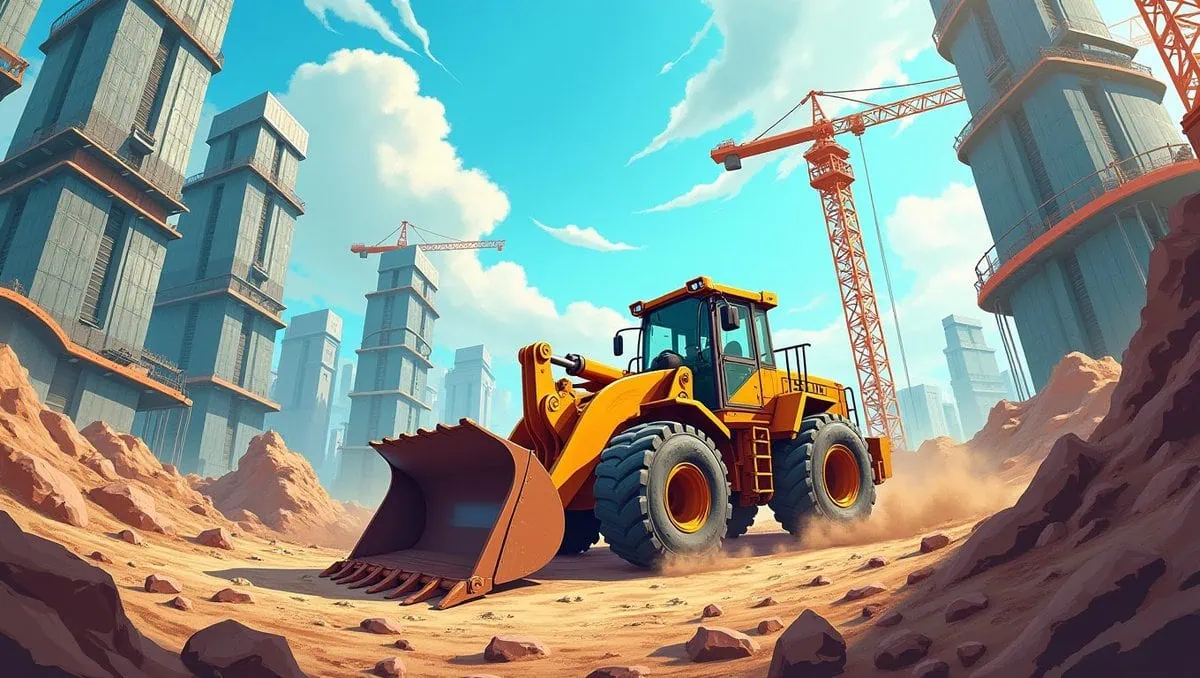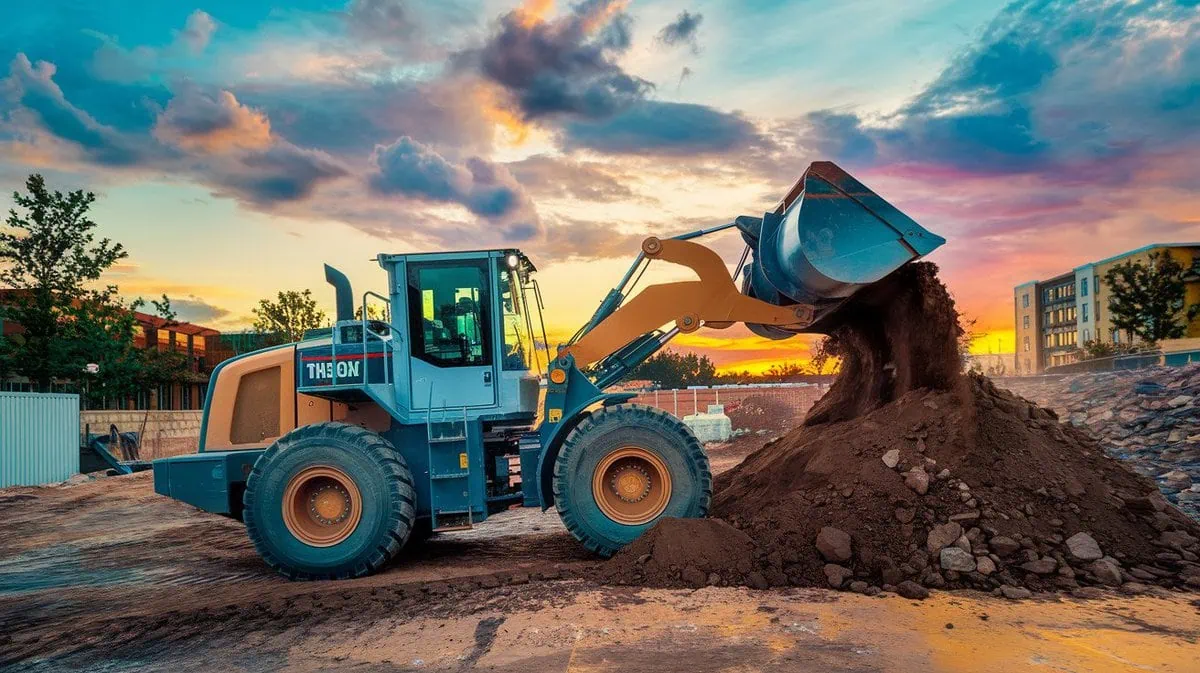Rust can drastically shorten the life cycle of your excavator and reduce its effectiveness, leading to expensive repairs and downtime. If you don’t take action to prevent rust, you could find yourself with downtime and equipment failure at the worst possible time. In this post, we’ll cover practical steps you can take to prevent rust from eating away at your excavator. Now, let’s explore the causes of excavator rust and how to tackle it effectively through proper care and maintenance.

Why Does Rust Form on Excavators?
Rust occurs when oxygen and moisture combine and react with metal surfaces, causing oxidation. Steel is especially vulnerable to rusting. Mini excavators made almost entirely of steel are particularly vulnerable to rusting—especially in humid areas, like near the ocean or in a damp climate.
Rust occurs rapidly when equipment is exposed to rain, saltwater, or high humidity without proper protection. Furthermore, if a mini excavator is used in a muddy or wet environment, it will be especially prone to rust. The problem with rust goes beyond just weakening metal. Over time, rust will also cause moving parts to stick, leading to mechanical failure.
How to Prevent Excavator Rust?
Regular cleaning, storage, and protective coatings are key to preventing rust on your excavator.
- Clean the Excavator: Wash your mini excavator after every use. Clean the dirt, mud, and anything that might be holding moisture against the metal. That means even if it’s not dirty, but it’s covered in salt, you need to wash the salt off, because salt and water create rust.
- Proper Storage: Keep your mini excavator in a dry, well-ventilated area when you’re not using it. Storing it out of the weather, even if you have to throw a tarp over it, will help dramatically reduce the risk of rust.
- Apply Protective Coatings: Rust-resistant coatings create a barrier between the metal and water and humidity. Invest in high-quality, heavy machinery-specific rust inhibitors and coatings.
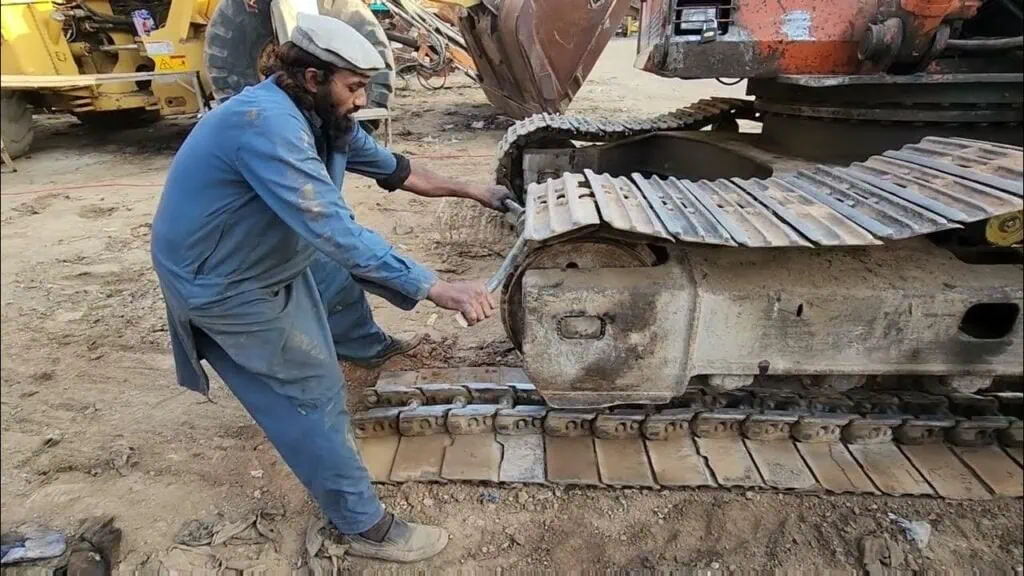
How to Do Excavator Rust Prevention?
To prevent excavator rust, the key is to be proactive and consistent with maintenance. Here’s what you can do:
- Clean After Use: Every time you use the excavator, ensure it’s thoroughly cleaned. Pay special attention to the undercarriage and areas where dirt and water can accumulate.
- Coat Vulnerable Areas: Apply rust-resistant paint or protective coatings to all exposed metal parts. This includes the excavator’s frame, undercarriage, and any hydraulic components.
- Inspecciones periódicas: Make it a habit to inspect your excavator for early signs of rust. Catching it early means less damage and lower repair costs.
Does an Excavator Have a Recycler Rust?
If your mini excavator has recycling components like a crusher, metal recycler, or compactor, it’s even more likely to rust. These machines are exposed to all kinds of debris and moisture and will, therefore, be more likely to corrode. Recyclers like crushers and metal recyclers gather dirt, moisture, and often saltwater from the materials being processed, causing rust to happen even faster. Clean and inspect these recyclers often, especially the hydraulic systems where moisture can easily overtake them.
How Long Does It Take for an Excavator to Rust?
The time it takes for an excavator to rust varies depending on several factors, including the environment and how well the equipment is maintained. If exposed to wet or salty environments without care, rust can begin to form in just a few weeks.
- Saltwater Exposure: Coastal areas or places with high salt content in the air accelerate rust formation. An excavator in such an environment could begin to show signs of rust within a short period.
- Humidity: High humidity areas also encourage rust formation. It’s essential to take preventative measures if you operate in these climates.
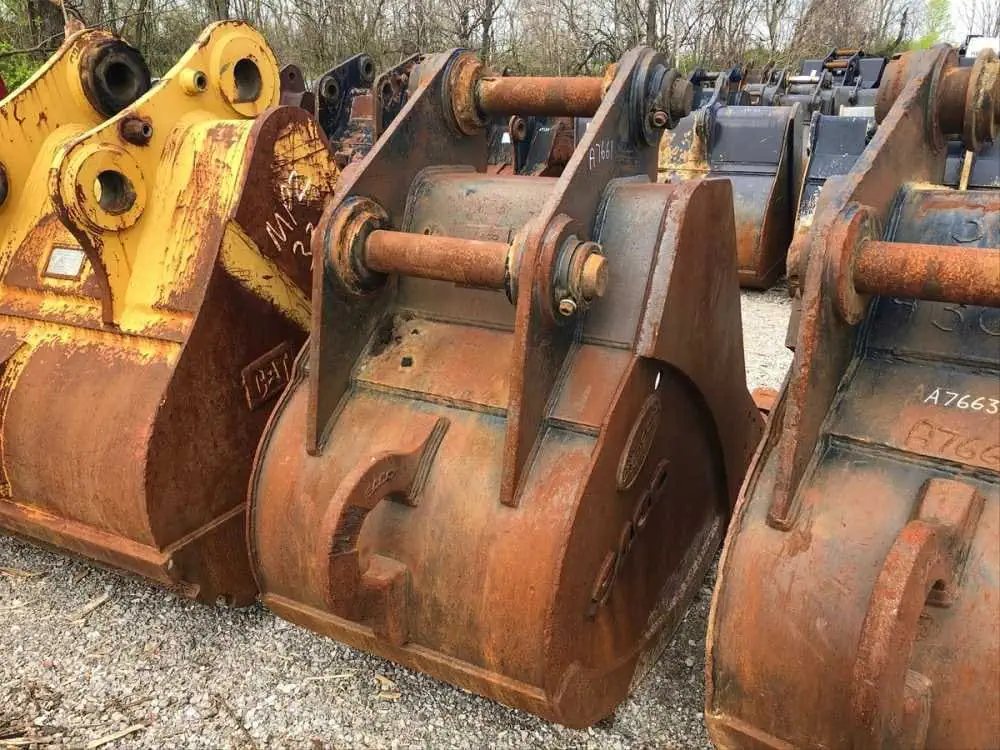
What Maintenance Practices Help Combat Excavator Rust?
Routine checks and maintenance are crucial to prevent excavator rust. Regularly inspect the undercarriage, joints, and hydraulic systems for early signs of rust. These parts are especially vulnerable because they are constantly exposed to the elements and may accumulate moisture.
- Lubrication: Regularly lubricate moving parts to protect them from moisture and keep rust at bay.
- Washing: After using your excavator in muddy or wet conditions, wash it thoroughly to remove corrosive materials that may speed up rusting.
Does Excavator Rust Affect Performance?
Yes, excavator rust can significantly impact performance. Rust can block moving parts, interfere with machinery operation, and even weaken the structure of your equipment. This can lead to mechanical failures, reduced efficiency, and an increase in maintenance costs.
Over time, rust can also reduce the overall lifespan of your excavator. It’s essential to address it early to prevent costly repairs and minimize downtime on your construction projects.
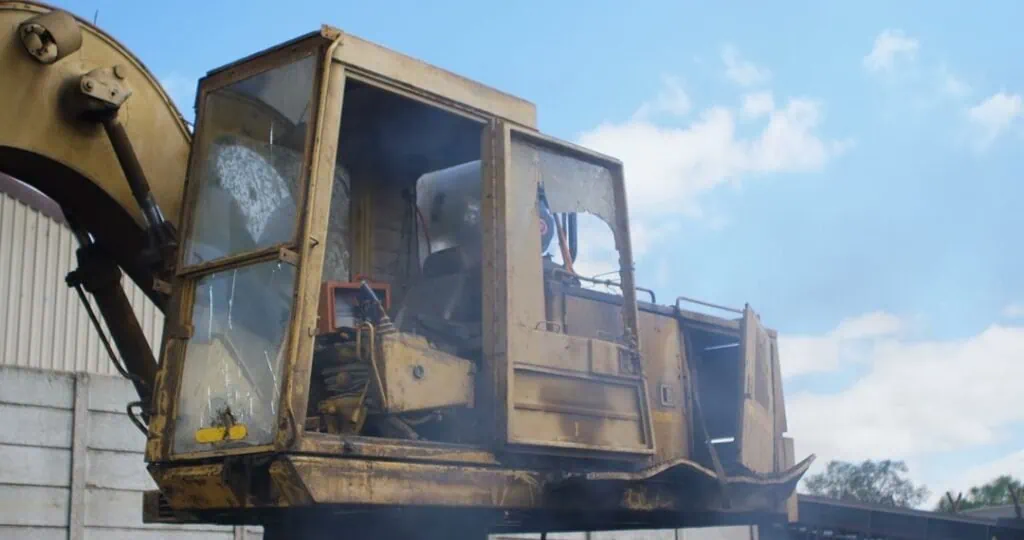
What Are the Best Protective Coatings for Excavators?
The right protective coatings are key to preventing rust on your excavator. There are several types of coatings designed to provide a barrier against moisture:
- Zinc-Based Paint: This type of paint provides excellent protection against corrosion. It’s ideal for excavators that are frequently exposed to harsh conditions.
- Epoxy Primers: These primers bond well to metal surfaces and provide long-lasting protection.
- Polyurethane Coatings: These coatings are known for their durability and resistance to weathering, making them a great option for excavators.
Applying one of these protective coatings to your excavator will help prevent rust and extend the machine’s lifespan.
Resumen
Preventing excavator rust is essential for maintaining your equipment’s performance. Regular cleaning, protective coatings, and proper storage will keep your machine in top condition and save on costly repairs.



